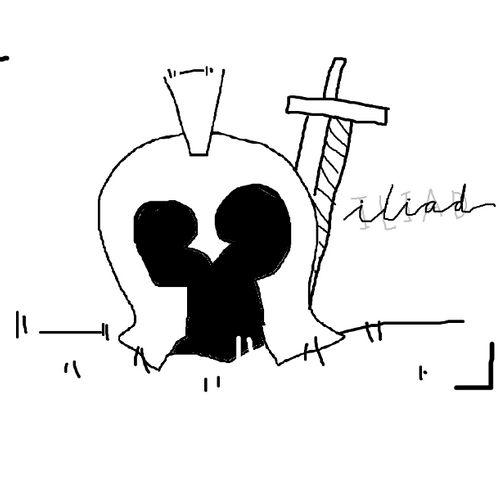The Iliad and Follies of Men #MemodWritetoWin
May 10, 2023 · 2 mins read
0
Share

The Iliad, written by Homer during the early 7th century BC, had been a classic epic taking place during the Trojan War. Though we do not know the extent of how much truth there is to the epic, we can see how Homer uses it to show us the follies and consequences of man's actions.
Save
Share
The reality is that though this may be a fictional work, there are real consequences to every action we make, and that is reflected with the events of the Iliad. Each character represents different follies, and we can see the result through the downfall of each character.
Save
Share
King Agamemnon's folly was his greed. His greed for desire, lust and power led him to take Briseis, Achilles' concubine, leaving Achilles begrudging him by refusing to join the war. Due to his greed, many Achaeans fell due to the loss of their greatest warrior. They nearly lost.
Save
Share
Achilles' folly was his pride. His pride made him stubborn in his refusal to assist the Achaeans until Agamemnon apologizes. Due to his refusal, many died, one of which was his most beloved comrade Patroclus, who pretended to be him to scare off the Trojans.
Save
Share
Patroclus' folly was his impulsiveness. When he saw an opening to destroy Troy, he immediately seized it despite being warned by Achilles and Apollo not to push the Trojans further down their walls. That led to his death through Hector piercing a spear through his guts.
Save
Share
Hector's folly was his overwhelming sense of duty. Due to his guilt in not listening to his adviser about retreating to Trojan walls early in battle after Achilles' appearance, he decided to face Achilles himself knowing he would die. He died and left his family behind to suffer.
Save
Share
Paris' folly was his lust, topped with his cowardice. His lust led him to tell Aphrodite he wanted the most beautiful mortal woman, and having Helen, caused the Trojan war to immerse. The loss of his brothers' lives and the fall of Troy resulted from his cowardice.
Save
Share
King Priam's folly was his refusal to discipline his son. Instead of disciplining his son and making peace with the Achaeans, he chose to allow Paris to keep Helen. At least, we do not see him try to rein Paris in. Hector dies as a result, and he had to plead with Achilles.
Save
Share
The gods and goddesses' folly was intervening and playing favouritism. The sides they took at war caused a lot of unfairness and arguments to arise. It was they who truly started the Trojan war to begin with, begrudging each other and their refusal to cooperate with each other.
Save
Share
The Iliad is a morally grey book where each character is neither completely right or wrong. They had reasons to do what they did, but what they did led to consequences they cannot undo.
"Sing of the rage that costs the Achaeans so many good men" [Book I, The Iliad]
Save
Share
0